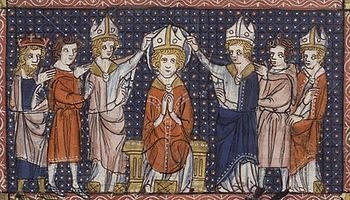I made the decision many years ago that I would not let her deteriorate or go through any unnecessary pain when there was no hope of her getting better. So there was no inner struggle or conflict about knowing what needed to be done.
She was happy to the end - still guarding the house with vigor.
Izzy had an astonishing talent for friendship, was fiercely maternal and powerfully confident in her role as a guard dog - a job she took very seriously. She adored babies of any species: cat babies, dog babies, human babies.... it didn't matter. If she encountered a baby all she wanted to do was be with it and protect it and take care of it.
I want to say right here that I am grateful beyond expression to all the wonderful doctors and other staff members of Woodland Central Animal Hospital who loved her too, praised her lavishly and gave her the very best of care from the moment she was brought in as a rescue until she breathed her last.
Finally, to those who have been so supportive of me today through emails, phone calls, prayers and presence, thank you. I feel surrounded by care and compassion and sympathy in the very best sense of that word.
I'm going to rest for a while now.
With love to you all,
Ellie

 Artist: Khalil Gibran
Artist: Khalil Gibran Our Lady of Refuge
Our Lady of Refuge



 Artist: Alejandro Victor Ramirez Montalvo
Artist: Alejandro Victor Ramirez Montalvo



 Artist: Dinah Roe Kendall
Artist: Dinah Roe Kendall
 Artist: David Hayward
Artist: David Hayward
 Image from Wikimedia Commons
Image from Wikimedia Commons 




 Artist: Kotiantz Gevork Vartanovich
Artist: Kotiantz Gevork Vartanovich

 Mosaic in the Basilica di Sant'Apollinare Nuovo
Mosaic in the Basilica di Sant'Apollinare Nuovo Artist: Domenico Ghirlandaio
Artist: Domenico Ghirlandaio


